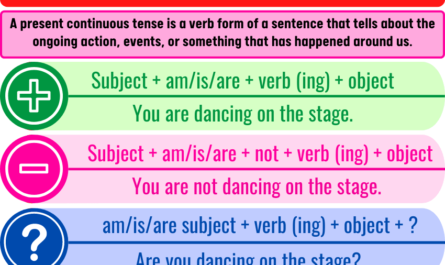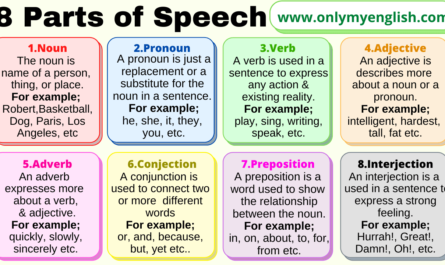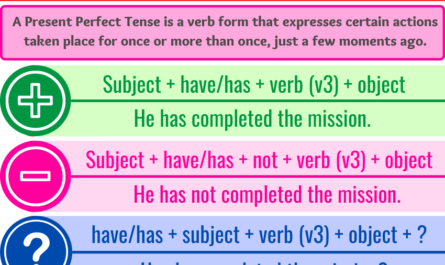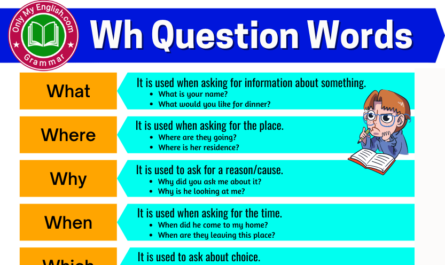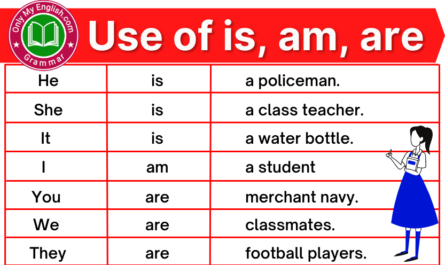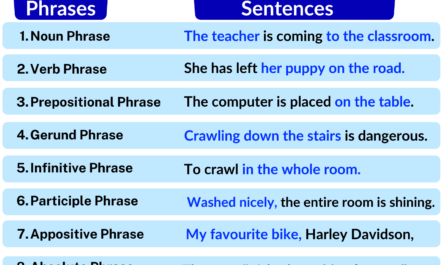A question tag also called tag questions or tail questions is a word format used to make any statement or sentence into a question statement. It is placed at the end of the sentence, along with a question mark.
- If the statement is in the positive form, then the question tag will be in the negative form, and if the statement is in the negative form, the question tag will be in the positive form, respectively.
- The question tag of any statement is in the tense form determined by the tense of the statement’s auxiliary verb of a modal verb, respectively, and proceeds further.
- If there is an absence of the auxiliary verb in the sentence, we can use do/does as per the subject.
- Invert the position of the subject and an auxiliary verb as in the sentence.
A question tag is used generally in the English Language, mostly when we have confirmed something from someone, or we check whether the person is agreed or not, or something is true or else.
It is very easy to form any question tag statements; only we have to take an auxiliary verb from the statement and change its form from positive to negative or negative to positive, respectively, along with a relevant subject from the statement and end the statement with a question mark.
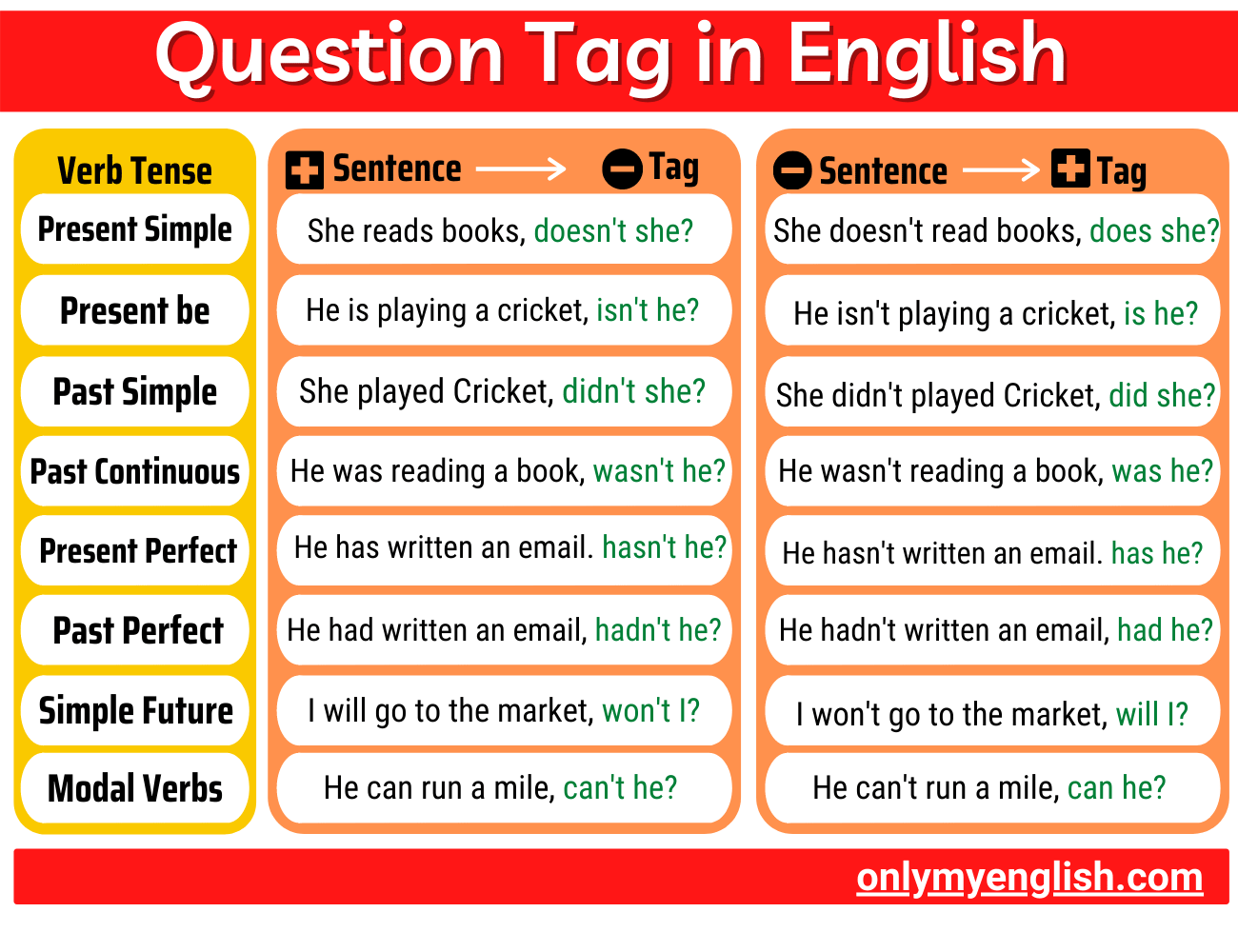
Examples:
- The Bullet train is very fast, isn’t it?
Here, the auxiliary verb “is” is in positive form, so in question tag, it gets changed into “Isn’t” in negative form, and the subject becomes “It” as the train is an object, a machine.
2. They are not playing outside in this hot weather, are they?
Here, the auxiliary verb “are” is in negative form, so the question tag becomes positive, and the subject is inverted after an auxiliary verb.
3. You need money for your mother’s operation, don’t you?
Here, the absence of an auxiliary verb in a statement, so “do” is used in place of an auxiliary verb in a question tag.
- It’s very hot outside, isn’t it?
- Raghav is a vegetarian guy, isn’t he?
- He is an undercover cop, isn’t he?
- She’s gone to her native place Lufthansa, hasn’t she?
- They should play well in today’s match, shouldn’t they?
- She will have been dancing all day, won’t she?
- We have been celebrating his victory all night, haven’t we?
Rules for making an exceptional question tag:
Rule 1: If the statement has a Negative Adverb.
Some Negative Adverbs like seldom, hardly, never, rarely, nowhere, unnecessary, etc. impact a negative form in a sentence.
So we consider these statements as a negative one and accordingly forming a question tag in a positive one.
For example:
- He has never gone outside at midnight, has he?
- We seldom play football on this ground, do we?
Rule 2: If a statement begins with I’m.
For the first person singular subject, use the verb form are/aren’t.
For example:
- I’m genuinely excited, aren’t I?
- I’m looking handsome, aren’t I?
Rule 3:If the sentence begins with Let’s.
If the sentence begins with “Lets,” then we use “shall we” in a question tag.
For example:
- Let’s have some drinks, shall we?
- Let’s celebrate tonight, shall we?
Rule 4: If the statements are Imperative.
In certain cases, we see a question tag is used with imperative sentences like (orders, invitations); in spite, it does not require any answer.
- For invitations, we use, won’t you?
- For orders, we use, “will you?/ would you?/ can you?/ can’t you?” respectively.
For examples,
- Close the door, will you? (order- less polite)
- Come closer, won’t you? (invitation- polite)
- Sit down, can you? (order)
- Take it, would you? (order)
Rule 5: structure like “there.”
If any sentence has it included “there” in it, then “there” is also reflected in a question tag also.
For example:
- There were so many advertisers standing apart, weren’t there?
- There’s no choice left, is there?
Rule 6: Subjects like Everyone/Everybody, No one/Nobody, Someone/Somebody.
If any sentence has a subject like “Everyone/Everybody, No one/Nobody, Someone/Somebody”,
Then in a question tag, we use “they” as a subject.
For example:
- Someone was looking for a helicopter, were they?
- Nobody came for a funeral other than his family, did they?
Rule 7: Subjects like Everything/Nothing/Something.
If a sentence has a subject like Everything/Something/Nothing, we have to use “it” in a question tag.
For example:
- Something missing in this picture, doesn’t it?
- Nothing will change after you, won’t it?
Rule 8: If the subject is “this,.”
If a statement has a subject “this,” then we use “it” in the making of a question tag.
For example:
- This will not be going to happen again, won’t it?
- This is not your new hostel, is it?
Rule 9: Affirmative after affirmative.
An affirmative question tag can also be used in an affirmative sentence to show a surprise or interesting reaction.
For example:
- You’re not going anywhere, aren’t you?
